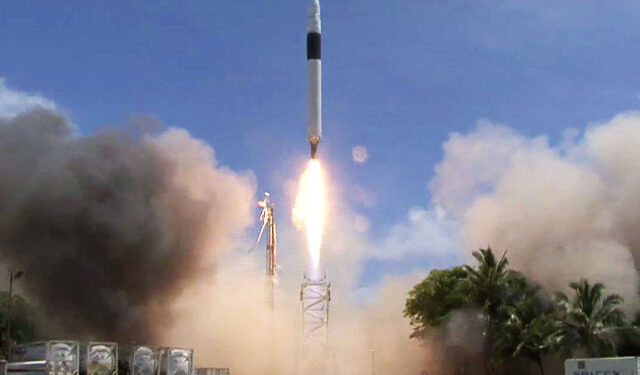SpaceX has successfully launched its Falcon 1 rocket, marking the first time a privately owned company has sent a liquid-fuelled rocket into Earth’s orbit. The achievement, hailed as a milestone in the commercial space sector, places SpaceX at the forefront of a new era in space exploration once dominated solely by governments.
A breakthrough for private spaceflight
The launch took place from the Omelek Island launch site in the Marshall Islands, where Falcon 1 lifted off and completed its mission to reach orbit. The rocket, a two-stage liquid-fuelled vehicle, had faced setbacks in earlier attempts, but its success now demonstrates the potential for private companies to develop and operate orbital-class rockets. SpaceX, founded in 2002 by entrepreneur Elon Musk, aims to cut costs and increase reliability in space transportation.
The path to success after setbacks
The company endured three failed launches before achieving this breakthrough, each failure scrutinised closely by industry observers. Critics had questioned whether a small start-up could break into a field dominated by state agencies such as NASA and Roscosmos. The fourth attempt, however, proved decisive, with Falcon 1 entering orbit smoothly and showcasing the viability of private innovation in a high-risk industry.
Implications for the space industry
The success of Falcon 1 signals the start of broader commercial participation in space. By proving that private companies can build and operate orbital rockets, SpaceX has expanded the possibilities for commercial satellite launches, scientific missions, and even human spaceflight in the longer term. Analysts say this achievement may reduce costs, increase competition, and accelerate the pace of innovation in the sector.
Looking ahead
For Musk and his team, the Falcon 1 victory is only the beginning. The company is already developing larger vehicles, including the Falcon 9, designed to carry heavier payloads into orbit and potentially serve crewed missions. With this milestone, SpaceX has positioned itself as a credible challenger to government programmes and an essential driver of the commercialisation of space.
REFH – Newshub, 28 September 2025




Recent Comments